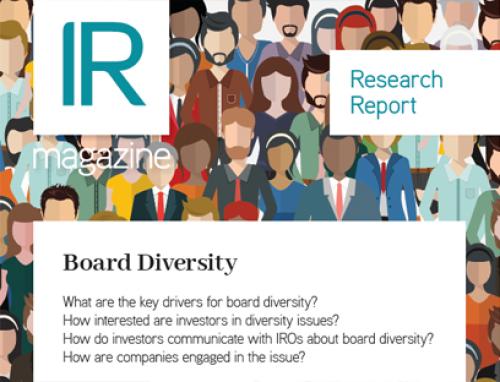Research project identifies the different roles IR plays within corporations
In a research project carried out by Universtät Leipzig and supported by German IR association DIRK and the IR Club, Kristin Köhler explores how IR has become institutionalized as a management practice in capital market-oriented companies and as a profession in Germany. She interviewed a total of 80 IR managers at German companies and other capital market players. The following is a summary of her findings.
Five functions
IR has developed dynamically over the last few years and it is impossible to imagine it not being a significant function of large companies with an international shareholder base. It offers considerable support for the financing of a company and is therefore directly involved in value creation.
But a reality check shows that a standard job description is an illusion. There is not one, but five roles IR departments play:
• Fulfilling the regulatory duty to provide information
• Communication
• Marketing
• Finance
• Integrated activities
The various functions reflect the way IR professionals view themselves and how capital market players perceive them. They also reflect the role IR plays within the company and in the capital market.
1. Fulfilling the regulatory duty to provide information
IR as an information provider is understood solely as fulfilling regulatory requirements. Financial communication is reactive and geared toward the minimum requirements.
2. Communication
The IR manager is viewed along the lines of a communication function, in particular as the company’s ambassador in the capital market. This is different from the type of IR run by the finance function.
‘Some say IR is a bullet point of [corporate] communications. Others say IR really belongs in strategy or accounting. I think, for an external impact it is very, very important to have a one-voice policy and that it should be managed from a central point in the company’ – head of IR, DAX-listed company
3. Marketing
IR as a marketing function markets the share. The goal is the maximization of the share price and creation of a positive image for the company. But there is a distinction between selling the equity story and using marketing techniques in approaching investors.
4. Finance
Here IR is understood as performing support services for the finance function in a company. The IR manager has the primary role of providing information and explaining the numbers. IR in Germany is usually not a bullet point of corporate communications but an independent function or one that reports directly into finance.
‘We are not communicators, we are financial experts’ – head of IR, DAX-listed company
5. Integrated activities
IR is an independent functional unit within a company that is in sync with the finance and communications functions as well as with strategy, M&A, corporate governance, sustainability and corporate development.
IR also has an educational function. It acquaints operational business units with how the capital markets work and what the demands of shareholders are as owners of the company.
As a central point for these various internal and external stakeholders, IR lends significant support to the financing of a company and is therefore directly involved in creating value.
‘You already see examples where IR is not only a communicator but also a strategic and financial adviser to the management board’ – buy-side representative
Departmental and personal development opportunities
Of course the various roles are not clearly delineated. They correspond to both the current and the historical perspective of the characteristics of IR.
Against this backdrop it is difficult to speak about a standard IR profession, even though we know that IR is well established in listed companies of a certain size and capital market-orientation – no matter what the type.
We can say that the more investor relations is included in strategic decisions or even in the broader executive management board – usually in connection with departments like M&A, strategy, corporate governance or corporate development – and has direct access to the CEO, the stronger its standing becomes within the organization, and consequently in the capital market.
It doesn’t make sense for all companies to pursue strategic investor relations, however, as the cost-benefit may not be reasonable (for example, for bond issuers) or may not be welcomed by the board. With increasing professionalization, investor relations officers can shape their own areas of responsibility and take on a strategic role.
With knowledge of the different roles IR plays within companies, IROs can position themselves accordingly within the organization. They can identify development opportunities both for the function itself and for their own personal careers.
Kristin Köhler is the CEO of the Center for Corporate Reporting, based in Zürich, Switzerland. For more on the research report, please click here.










